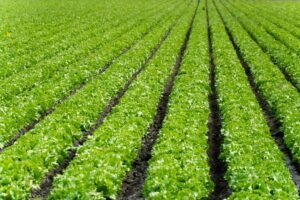Running an organic farm in California is both rewarding and challenging. Farmers dedicated to sustainable agriculture face a unique set of risks compared to conventional operations. From maintaining organic certification to protecting soil health and natural pest control systems, every aspect of an organic farm requires careful management—and proper insurance coverage plays a major role in that protection. Insuring an organic farm involves understanding how organic practices affect risks, coverage needs, and premium costs.
Understanding Organic Farm Insurance
Organic farm insurance provides financial protection for farmers who operate under certified organic standards. It includes essential coverages like general liability, property insurance, crop insurance, and workers’ compensation but tailored to the specific challenges of organic production. While the basic structure is similar to traditional farm insurance, organic policies often include added protection for contamination, certification issues, and product integrity.
California is a leader in organic agriculture, producing over a third of the nation’s organic sales. However, because organic operations depend on strict compliance with USDA Organic standards, any disruption—such as pesticide drift or contamination—can threaten both production and certification status. That’s why specialized coverage is crucial for protecting organic farmers against financial loss.
The Importance of Certification Protection
One of the most significant concerns for organic farmers is maintaining certification. A single incident of pesticide contamination from a neighboring farm or unapproved chemical use can lead to decertification, meaning your crops can no longer be sold as organic. This can cause massive revenue losses and long-term damage to your brand reputation.
Some organic farm insurance policies include certification interruption coverage, which helps offset the financial impact of losing certification due to unintentional contamination or compliance failures. This coverage can cover lost income, re-certification costs, and other business expenses while the farm works to regain organic status.
Crop Insurance for Organic Farms
Crop insurance is a must for any California farm, but organic farmers face special challenges when it comes to valuation. The USDA’s Risk Management Agency (RMA) now recognizes the higher market value of organic crops compared to conventional ones, meaning organic farmers can insure their crops at organic price levels rather than standard rates.
Organic crop insurance protects against yield loss from natural disasters like drought, flood, fire, or disease. For added protection, many farmers pair it with crop-hail insurance, which covers direct damage from hailstorms. Because organic farms often rely on natural growing methods and avoid synthetic fertilizers and pesticides, they may be more vulnerable to weather fluctuations and pests—making robust crop insurance coverage even more essential.
Liability Coverage for Organic Farms
Liability insurance is another critical component for organic operations. It protects against third-party claims involving property damage, bodily injury, or contamination. For instance, if a customer becomes ill after consuming your produce or if your compost run-off impacts a nearby property, liability coverage ensures you’re financially protected.
Product liability is particularly important for organic farmers selling directly to consumers through farmers’ markets, CSAs, or local grocers. If a product-related issue arises, your insurance will help cover legal costs, settlements, and medical expenses.
Equipment, Property, and Livestock Protection
Just like conventional farms, organic farms rely on specialized equipment, barns, and processing facilities. Property insurance protects these assets from fire, theft, or weather-related damage. Since organic production often includes greenhouses, irrigation systems, or renewable energy equipment like solar panels, your policy should reflect these valuable assets accurately.
If your farm includes livestock—such as organic poultry, dairy cows, or goats—you’ll also need livestock insurance. This coverage protects against losses caused by accidents, disease, or natural disasters.
Risk of Contamination and Cross-Exposure
One of the most significant risks for organic farms is contamination from nearby conventional farms. Pesticide drift, genetically modified organism (GMO) exposure, or runoff from neighboring properties can all compromise organic crops. Specialized contamination coverage can reimburse for losses when crops must be destroyed or cannot be sold as organic due to external exposure.
To reduce these risks, maintaining proper buffer zones, windbreaks, and record-keeping is critical. Insurers may also consider these preventive measures when calculating your premiums—farms that actively mitigate contamination risks often benefit from lower insurance rates.
Workers’ Compensation and Employee Safety
Many organic farms rely on labor-intensive methods like hand weeding, manual harvesting, and small-scale planting. These activities can increase the risk of employee injuries compared to mechanized farms. Workers’ compensation insurance ensures that your employees receive medical care and wage replacement in case of work-related injuries. In California, this coverage is legally required for any farm employing workers.
Investing in employee safety training and ergonomic equipment can help reduce claims and lower your premiums over time.
Choosing the Right Insurance Partner
Insuring an organic farm requires working with an insurance provider that understands the nuances of organic production. A knowledgeable agent can help assess your risks, explain the value of organic-specific coverages, and tailor a policy that fits your needs and certification requirements. It’s important to review your insurance annually—especially as your farm expands or introduces new crops or practices.
Conclusion
Organic farming in California is a rewarding but high-stakes venture. With rising consumer demand and strict certification standards, the right insurance coverage can mean the difference between recovery and ruin after an unexpected event. From contamination and certification loss to equipment and liability protection, specialized organic farm insurance provides the financial safety net every grower needs.
For expert guidance and customized insurance solutions for your organic farm, visit Western Insurance







